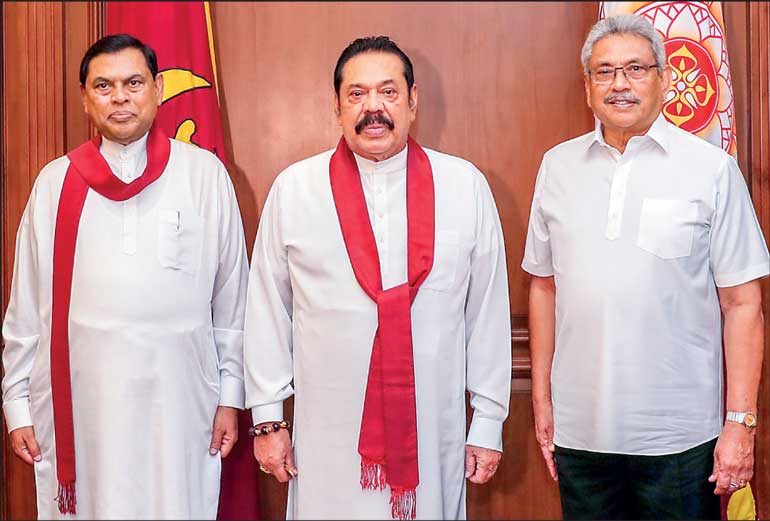
The Supreme Court of Sri Lanka today ruled that former President Gotabaya Rajapaksa and certain officials from his government are responsible for the economic crisis faced by Sri Lanka.
The court held that former President Gotabaya Rajapaksa, former Finance Ministers Mahinda and Basil Rajapaksa, former Central Bank Governor Ajith Nivad Cabraal and several others were responsible for the economic crisis.
The 5-judge Supreme Court bench gave a majority ruling that the above-mentioned Individuals are liable for the economic crisis, as they had mishandled the economy and violated the fundamental rights of the people.
Transparency International Sri Lanka (TISL) along with activists Chandra Jayaratne, Jehan Canagaretna and Julian Bolling filed the petition against the group in the public interest calling for action against persons responsible for the prevailing crisis in Sri Lanka.
Former President Gotabaya Rajapakse, former Finance Ministers Mahinda Rajapakse, Basil Rajapakse and Ali Sabry, the then Cabinet of Ministers, the Monetary Board of Sri Lanka, former Governors of the Central Bank W D Lakshman and Ajith Nivard Cabraal, former Secretary to the Treasury S R Attygala, former Secretary to the President P B Jayasundere, and Monetary Board member S S W Kumarasinghe were named as respondents in the petition.
At the time, the TISL also revealed that the Supreme Court had directed to include Monetary Board members Sanjeeva Jayawardena and Ranee Jayamaha, who also served before the economic crisis, as respondents in the application.
Last year, Sri Lanka grappled with its worst economic crisis since independence as US dollar shortages and shrinking reserves, together with an infamous organic fertiliser policy, led to crop failures and severe shortages of food and fuel.
People took to the streets to protest, eventually forcing a change in leadership as the economy nearly came to a halt and inflation surged. The protests led to the resignation of former President Gotabaya Rajapaksa and long-term politician Ranil Wickremesinghe being appointed the new President.
While there are signs of stability with food and fuel imports coming in and the IMF approving a US$3 billion loan, some economists say the current economic situation is nowhere close to pre-pandemic normalcy. (NewsWire)
